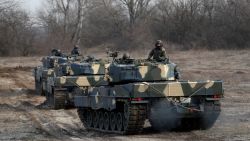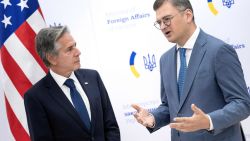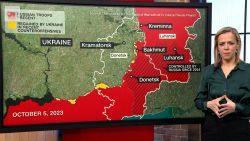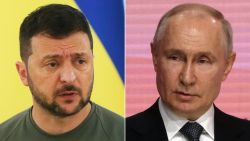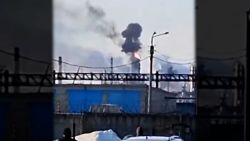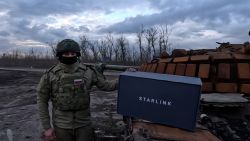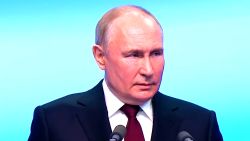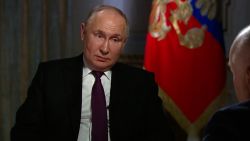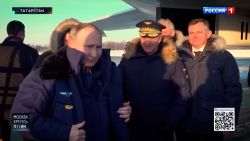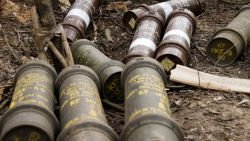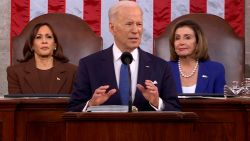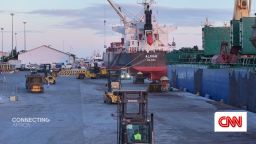The European Union is setting up a working group to examine whether frozen Russian assets can be used to rebuild Ukraine.
The group will carry out a “legal, financial, economic and political analysis” to assess this possibility, the Swedish government said in a statement Tuesday. Sweden currently holds the rotating presidency of the EU Council, which sets the bloc’s political priorities.
The statement added that part of this work would involve obtaining a “clearer picture” of where Russian state-owned assets are located and their value.
“In principle, it is clear-cut: Russia must pay for the reconstruction of Ukraine,” Swedish Prime Minister Ulf Kristersson said. “At the same time, this poses difficult questions. This must be done in accordance with EU and international law, and there is currently no direct model for this.”
Diplomats from EU countries are meeting Wednesday to establish the remit for the group. Once that is decided, they will give it the go-ahead to begin its work. The group will be chaired by Anders Ahnlid, director-general of Sweden’s National Board of Trade.
Questions over how to pay for the reconstruction of Ukraine loom large as the first anniversary of Russia’s invasion approaches. Ukraine’s economy shrank by more than 30% in 2022 as the war destroyed infrastructure, hurt businesses and disrupted daily life.
The cost of reconstruction and recovery in the country was put at roughly $349 billion in a September assessment from the World Bank, the European Commission and Ukraine’s government. But ongoing fighting will have raised the price tag since then.
A senior EU official estimated earlier this month that the European Union and Western allies had frozen more than $300 billion in Russian central bank assets that could potentially be used to rebuild Ukraine.
The European Union is also working on a tenth package of sanctions against Russia. European Commission President Ursula von der Leyen said Wednesday that the bloc would target €11 billion ($11.8 billion) worth of goods, using trade bans and export controls on technology.
“We are weakening Russia’s ability to keep its war machinery in place,” von der Leyen said in remarks to the European Parliament. “We have adopted nine packages of sanctions. The Russian economy is shrinking. We need to keep up the pressure.”
— Julia Horowitz contributed reporting.

